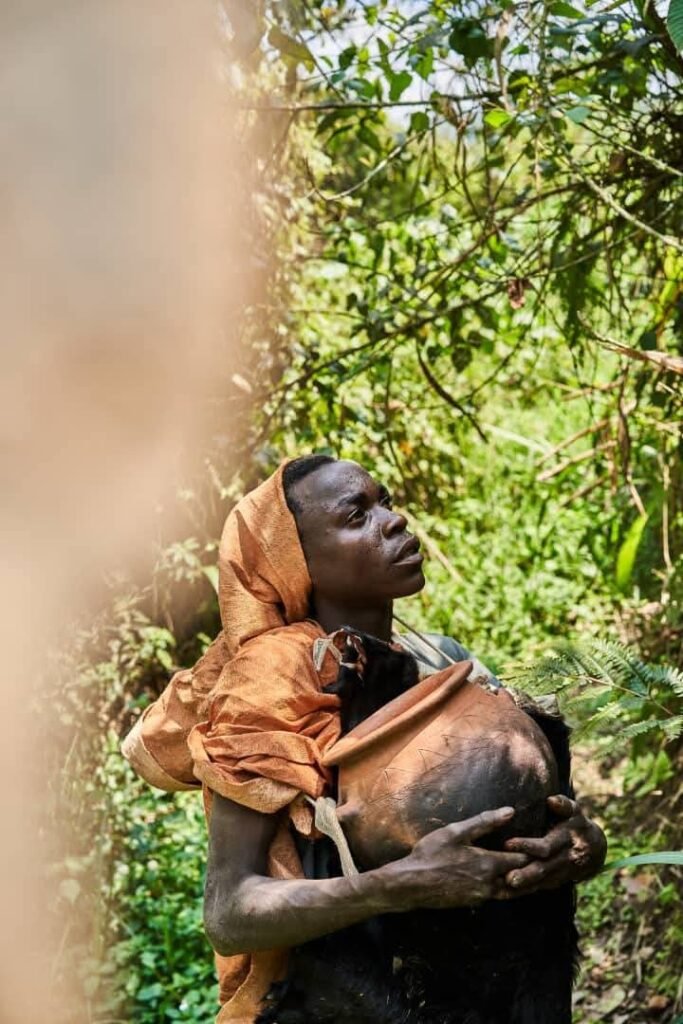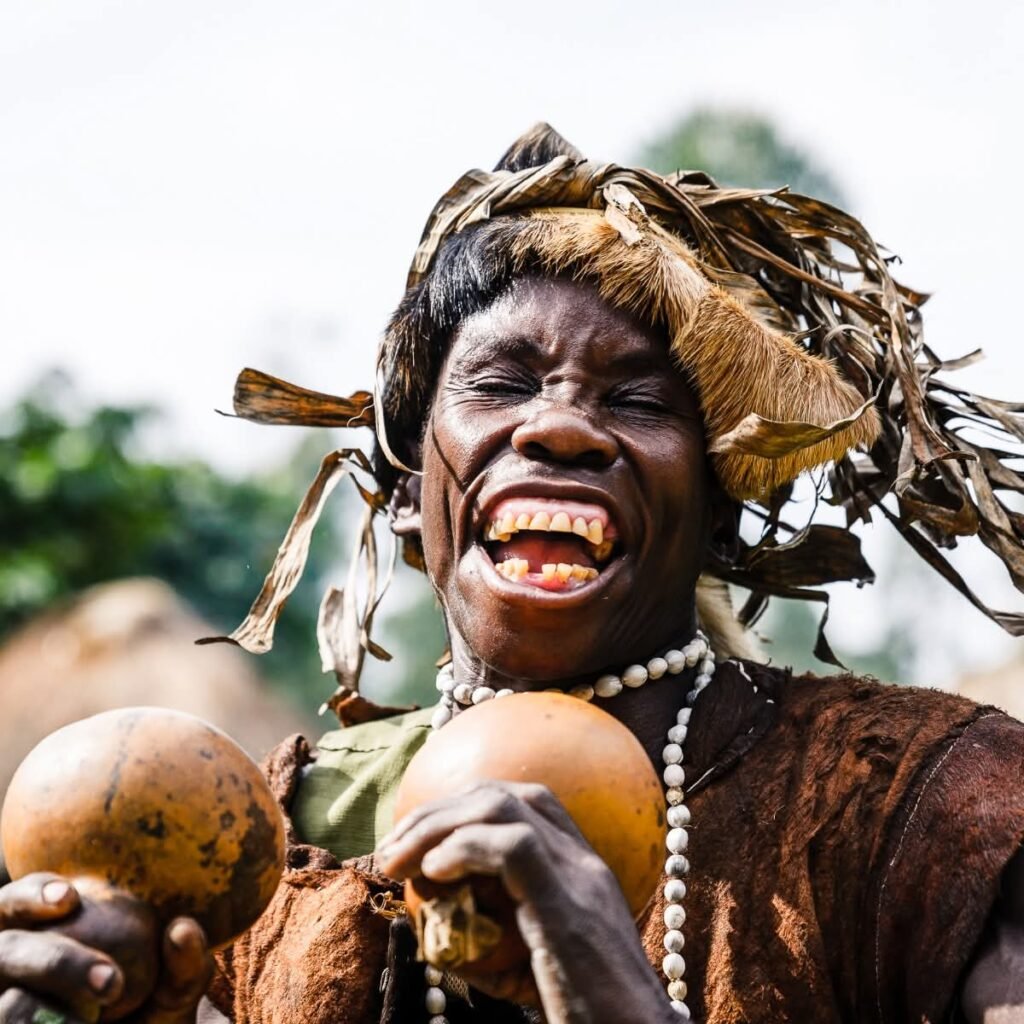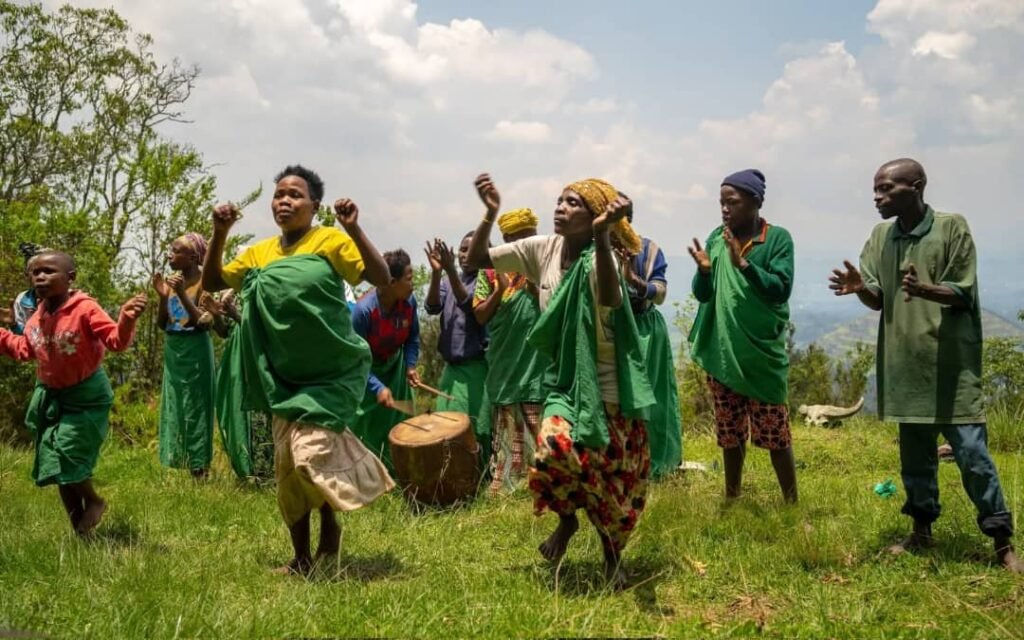About batwa community outreach
- Home
- About batwa community outreach
Purpose of the Safari
Our safari aims to immerse visitors in the rich heritage of the Batwa people, a vibrant culture
with a profound connection to the land. By participating in this safari, you’re not just exploring
a unique culture, but also contributing to the preservation and promotion of their traditions.
This safari is crucial for keeping the Batwa culture alive and ensuring their stories and
practices are shared with the world.
Your support will encourage economic growth by creating jobs and generating income through tourism and cultural activities. By employing Batwa guides, purchasing crafts directly from artisans, and including cultural performances in safari itineraries.
It will strengthen cultural preservation, funds can support traditional music, dance, and storytelling activities, keeping Batwa heritage alive while offering meaningful experiences to visitors
Educational opportunities, funds can be used to cover school fees, uniforms, and learning materials for Batwa children, giving them access to education that would otherwise be out of reach.
Enhanced healthcare access will further improve overall wellbeing, particularly for vulnerable groups. By partnering with local clinics and funding mobile health services, tour operators can help ensure Batwa families receive essential medical care.


The Batwa charity plays an important role in supporting the mental health of the community. By providing opportunities for cultural expression, education and engagement in meaningful activities, the Batwa are able to restore a sense of dignity and belonging. Many individuals have endured generations of displacement and marginalisation, which often left feelings of hopelessness and isolation.
Through charity projects that promote skills training, storytelling, music, dance and community outreach, the Batwa regain confidence and a stronger sense of identity. These efforts help to reduce stress, anxiety and depression while fostering resilience and hope for the future.
The positive impact is not only felt by individuals but also strengthens family bonds and creates a supportive community environment where wellbeing is prioritised.



Community Integration: Learning English will help community members navigate and communicate more effectively within their community and homes, creating new opportunities for interaction and support.

To provide access to education and vocational training. This can be achieved by purchasing books and uniforms for Batwa children. This enables members of the community to acquire skills that can improve their employment opportunities and promote self reliance.
They will also be used to improve healthcare services. Funds will be used to supply basic items such as mosquito nets, sanitary kits, and clean water solutions.
Funds will support cultural preservation through music, dance and storytelling. Funds will be used to purchase instruments and provide costumes, ensuring that cultural activities are sustainable and rewarding for participants. In addition, funds can be used to record and document oral histories, songs, and dances so that younger generations have access to their heritage.
The charity will also supply essential resources such as food, clean water and shelter for families in need. A percentage of the funds will be used to supply food packages for vulnerable households. Funds can also be invested in clean water projects, such as the construction of boreholes, rainwater harvesting tanks, so that families have safe and reliable drinking water
Finally, funds will be directed towards mental health and counselling programmes. These initiatives promote emotional resilience, reduce stress and help individuals build confidence and hope for the future.
Ready to make a difference?
The Batwa Internship Experience
Discover the spirit of the Batwa in Bwindi! This inspiring community programme empowers young Batwa through training in guiding, storytelling and conservation, while sharing their rich forest heritage with visitors.
Join the experience, meet the Batwa and be part of a journey that preserves culture, uplifts lives and celebrates the vibrant traditions of Uganda.
